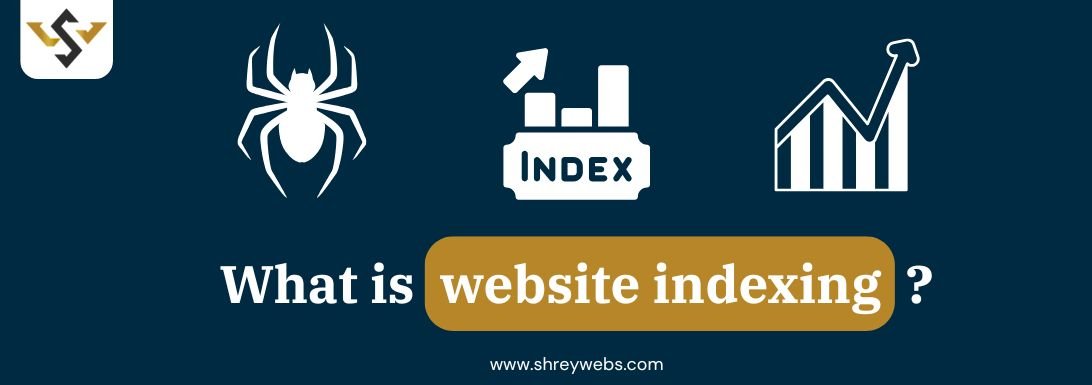If you want your website to appear in search results, understanding what is website indexing is essential. A fundamental concept in SEO, indexing determines whether search engines like Google can discover your site. No matter how well you design or optimize your web pages, they remain invisible without it.
If you want your website to show up in search results, understanding what is website indexing is essential. Simply put, indexing is the step that decides whether search engines like Google can find and list your pages. Without it, even the prettiest and best-optimized site sits unseen in the dark corners of the web.
In this guide, we’ll explain what is indexing a website, how it works, how to check if your site is indexed, and how to improve it.
What Is Website Indexing?
The Basics of Indexing a Website
Could you please explain what website indexing actually is? It’s the routine search engines follow to read, sort, and save the content they find on your site after crawling. Once a page lands in this digital filing cabinet, it’s finally in line to pop up on search engine results pages, or SERPs.
If a page isn’t indexed, it won’t rank or even show up in Google searches. This makes indexing a website a critical step for visibility.
Why Is Indexing Important for SEO?
Indexing allows search engines to understand the content and structure of your site. It’s the gateway to rankings and organic traffic. Indexed pages are the only ones eligible to appear in search queries, making indexed SEO one of the first things to get right in your optimization efforts.
Are you curious about the role of URLs in indexing? Read this: What Is URL in SEO?
How search engine indexing a Website
The Indexing Process Explained
Search engine indexing involves a multi-step process:
- Crawling: Bots follow links and gather new content.
- Rendering: The page code is run to see how it looks and behaves.
- Indexing: Fresh content is filed away in the search engine’s database.
- Ranking: Relevant pages are pulled up when users type a query.
Understanding what is website indexing helps you realize that if your content doesn’t get indexed, it won’t appear in search results. Your hard work will go unnoticed on the web if your site becomes stuck during the crawl. This is why monitoring each indexing page is vital.
Factors That Affect Indexing Website
Your site’s indexing speed can be influenced by several factors:
- Your site should have a clear and well-organized structure.
- The robots.txt file should not list any blocked files.
- There are no unintentional no-index tags on crucial pages.
- Correctly implemented canonical tags.
- The design is optimized for mobile devices and ensures speedy loading times.
Even one missing element can cause strong pages to be overlooked, so it pays to check them all regularly. If you’re wondering what is website indexing and why your site isn’t ranking, this is where the answer often lies.
Fine-tune your site with this step-by-step Technical SEO checklist.
How to Get Website Indexed by Search Engines
Steps for Better Indexing
Wondering how to get website indexed faster? Follow these steps:
- Share your sitemap through Google Search Console.
- Run the URL Inspection tool for key new pages.
- Link internally to fresh or lonely pages.
- Post content on social media.
- Fix duplicate and thin content right away.
Publish regularly and update info so it stays useful.
Indexing a Website Quickly
Need even quicker results? Use these extras:
- Install an SEO plugin like Yoast or Rank Math.
- Limit heavy JavaScript that slows down loading.
- Link new posts to strong authority pages.
By focusing on crawlability and relevance, you ensure your indexing website process is smooth and effective. Knowing what is website indexing gives you the foundation to apply these actions effectively and maximize visibility.
How to Check Website Indexing Status
Tools and Methods
Watching whether Google sees your pages is vital. Pages that stay unindexed waste traffic.
Here’s how to check website indexing:
- Type site: yourdomain.com in Google’s search bar.
- Look at coverage reports in Search Console.
- Grab data from tools like Ahrefs or SEMrush.
These methods help you check indexing of website regularly and identify issues early.
Troubleshooting Non-Indexed Pages
Every now and then, you might notice that some of your web pages simply refuse to appear in search results. Common culprits include
- Accidentally adding no-index meta tags
- Featuring duplicate or thin content
- Confusing canonical tags setup
- Errors are hidden in your XML sitemap.
Please address these promptly to ensure your indexing page is recognized. For a deeper audit, explore this On-Page SEO Audit Guide.
Best Practices for SEO Indexing
Pro Tips to Improve Website Indexing
- Maintain an updated XML sitemap.
- Clean up any broken links or orphaned pages.
- Add structured data markup (schema).
- Make sure the mobile speed is quick.
- Link internally in a logical way.
Doing so ensures indexed SEO strength and boosts your content’s search performance.
Common Mistakes to Avoid
Even tiny errors can block indexing. Watch out for:
- Placing no-index tags on key pages
- Blocking images or scripts in robots.txt
- Publishing copied or low-quality content
- Forgetting to request new URLs for indexing
By avoiding these mistakes, your indexing website process will run efficiently.
Conclusion
Understanding what is website indexing is the foundation of SEO success. From crawling to ranking, indexing determines whether your website can be found online. Whether you’re launching a new blog or managing a growing business site, focusing on indexing website best practices is essential.
Make it a habit to check indexing of websites regularly and stay on top of search engine guidelines. With proactive efforts and regular audits, your indexed pages will support better visibility, higher traffic, and stronger rankings.

